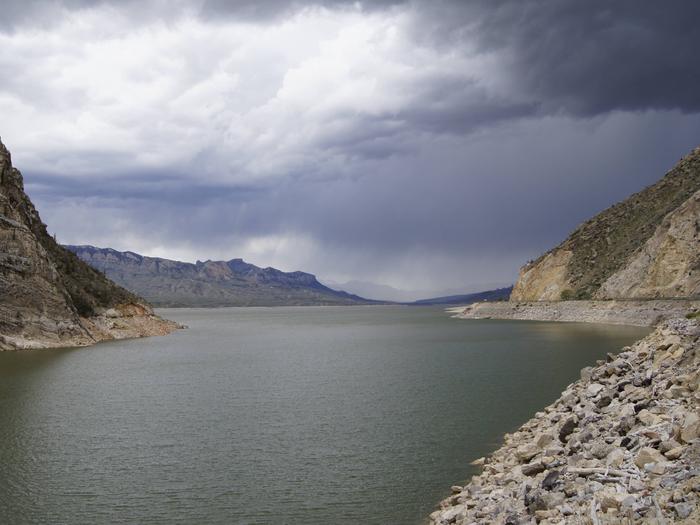Buffalo Bill Reservoir
Bureau of Reclamation, Wyoming.
Buffalo Bill Dam, of the Shoshone Project, constructed 1905-1910 on the Shoshone River about 6 miles upstream from Cody, Wyoming, is one of the first high concrete dams built in the United States. It is a feature of the Shoshone Project, one of Reclamation's earliest irrigation projects. Colonel William F. "Buffalo Bill" Cody made the area now occupied by the Shoshone Project, famous in the early days of the West. He and his companions were the first to perceive the possibilities of turning the sagebrush flats of Wyoming's Bighorn Basin into a land of agricultural abundance through irrigation. The main historic site is Buffalo Bill Dam, which is listed in the National Register of Historic Places as a major engineering achievement. A needle valve, ball valve, and a cableway winch once used at the dam are on display in the parking lot west of the dam. Fishing open year-round. Wyoming State fishing license required. Fish species (coldwater) include rainbow trout, brown trout, lake trout (mackinaw), and cutthroat trout. Good access via shoreline roads and 3 boat ramps. Water surface covers approximately 8,000 acres. Additional blue-ribbon quality fishing available on Shoshone River above and below reservoir. Available services include developed campsites and RV sites with dump stations, drinking water, tables, restrooms, wind screens, primitive campsites, and a new visitor center. Other activities include watchable wildlife, big game, and waterfowl hunting in season with Wyoming State license. Hiking and horseback riding. Popular windsurfing area. Current Reservoir Levels
Nearby Activities
- Boating
- Camping
- Fishing
- Hunting
- Picnicking
- Recreational Vehicles
- Visitor Center
- Water Sports
Directions
Site is 8 miles west of Cody, Wyoming on U.S. 14-16-20 (Yellowstone Highway).

